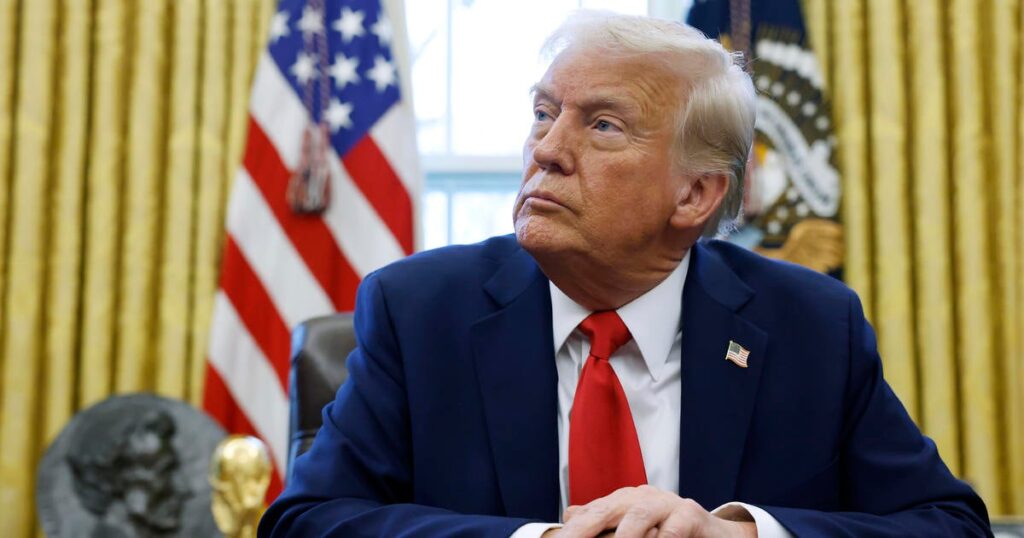President Trump on Friday directed government officials to prioritize the resettlement of South Africans of European descent through the U.S. refugee program, which he suspended during his first day in office.
In an executive order, Mr. Trump accused the South African government of discriminating against Afrikaners, an ethnic group in South Africa made up of descendants of European colonists, mostly from the Netherlands, who first arrived there in the 1600s.
Until the 1990s, White South Africans of European descent ruled South Africa, enforcing the brutal system of apartheid against the country’s Black majority.
But Mr. Trump alleged in his order that White South Africans are now the targets of oppression by the country’s government, citing a law that U.S. conservatives like Trump adviser and billionaire Elon Musk have said allow racially motivated seizures of land owned by White South Africans. Musk was born in South Africa.
South Africa’s government has strongly denied any land confiscations or racially motivated discrimination, saying the law being scrutinized targets land not being used or not serving the public interest.
In his order, Mr. Trump instructed Secretary of State Marco Rubio and Homeland Security Secretary Kristi Noem to “prioritize humanitarian relief, including admission and resettlement through the United States Refugee Admissions Program, for Afrikaners in South Africa who are victims of unjust racial discrimination.”
It’s unclear how and when that plan would be enacted, since refugee arrivals were brought to a halt by Mr. Trump.
In an executive order he signed on Jan. 20, the president argued refugees were a strain on receiving communities and said he would only restart the refugee program if he concluded that doing so would serve the interests of the U.S.
Mr. Trump’s order does, however, allow officials to make case-by-case exemptions to the freeze in refugee arrivals.
The U.S. refugee program is designed to offer a safe haven to people abroad fleeing persecution based on their race, religion, political views or other factors. Typically, refugees are referred to the U.S. by United Nations officials and spend months or years in third countries undergoing interviews, as well as security and medical checks, before being allowed into the U.S.
Historically, most of those allowed into the U.S. through the refugee program have hailed from countries in Africa and Asia plagued by war, ethnic strife or repression of minority groups, State Department figures show.
The president’s order also cuts off any aid or assistance to South Africa as long as it keeps its new land-reform law in place. The move raises further questions about the U.S.’ AIDS response program, PEPFAR, which provides HIV treatment to millions of adults and hundreds of thousands of children, many in African countries.
The Trump administration ordered a freeze on all foreign aid that encompassed international medical and humanitarian efforts. Last weekend, the State Department issued a waiver to allow PEPFAR and some other programs to resume, but there have still been delays in distributing the aid.
Beyond the racial discrimination accusations, Mr. Trump also said South Africa had taken “aggressive positions towards the United States and its allies,” citing the case the country filed before the International Court of Justice alleging that Israel was engaged in a genocide against Palestinians.
Margaret Brennan
contributed to this report.
https://www.cbsnews.com/news/trump-orders-u-s-refugee-resettlement-of-afrikaners/


